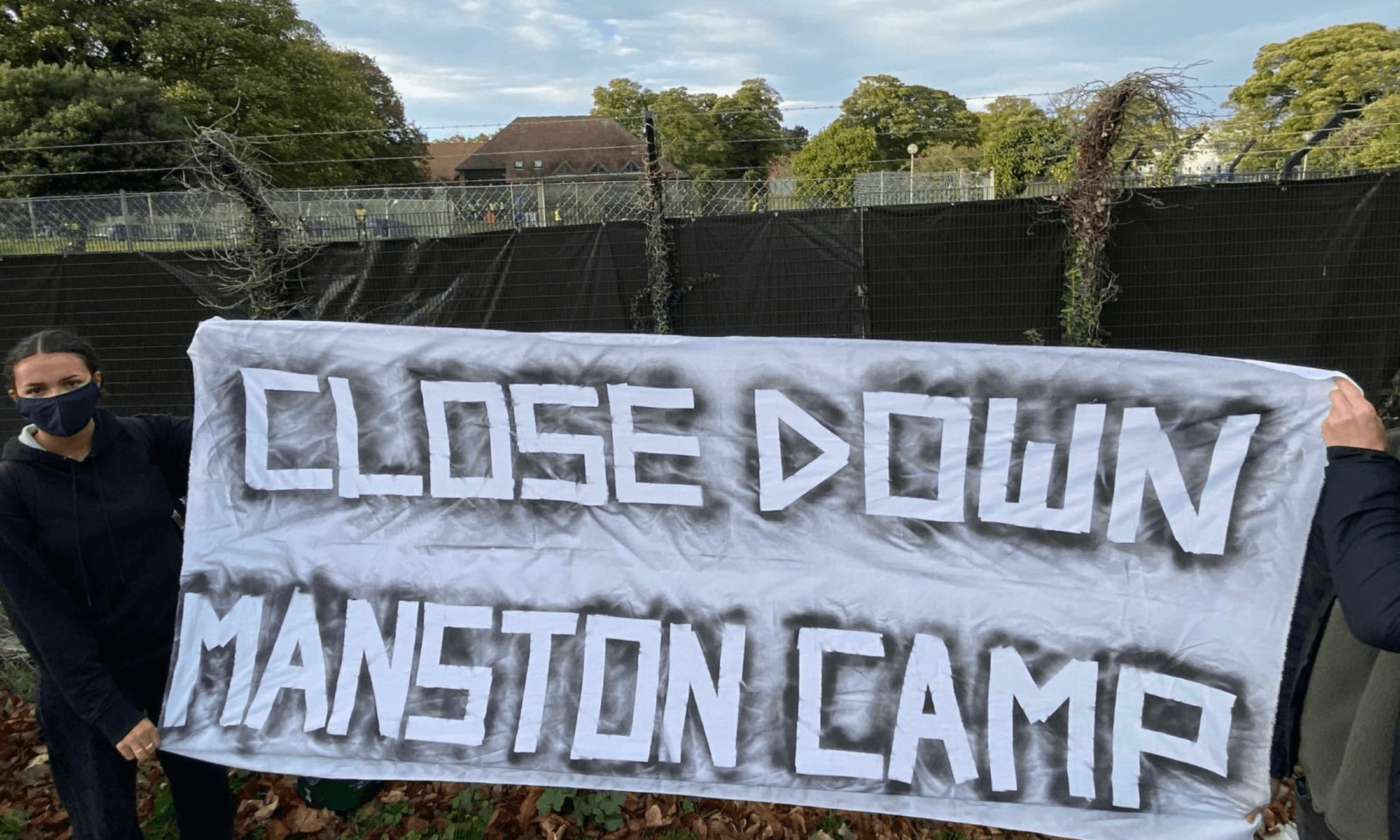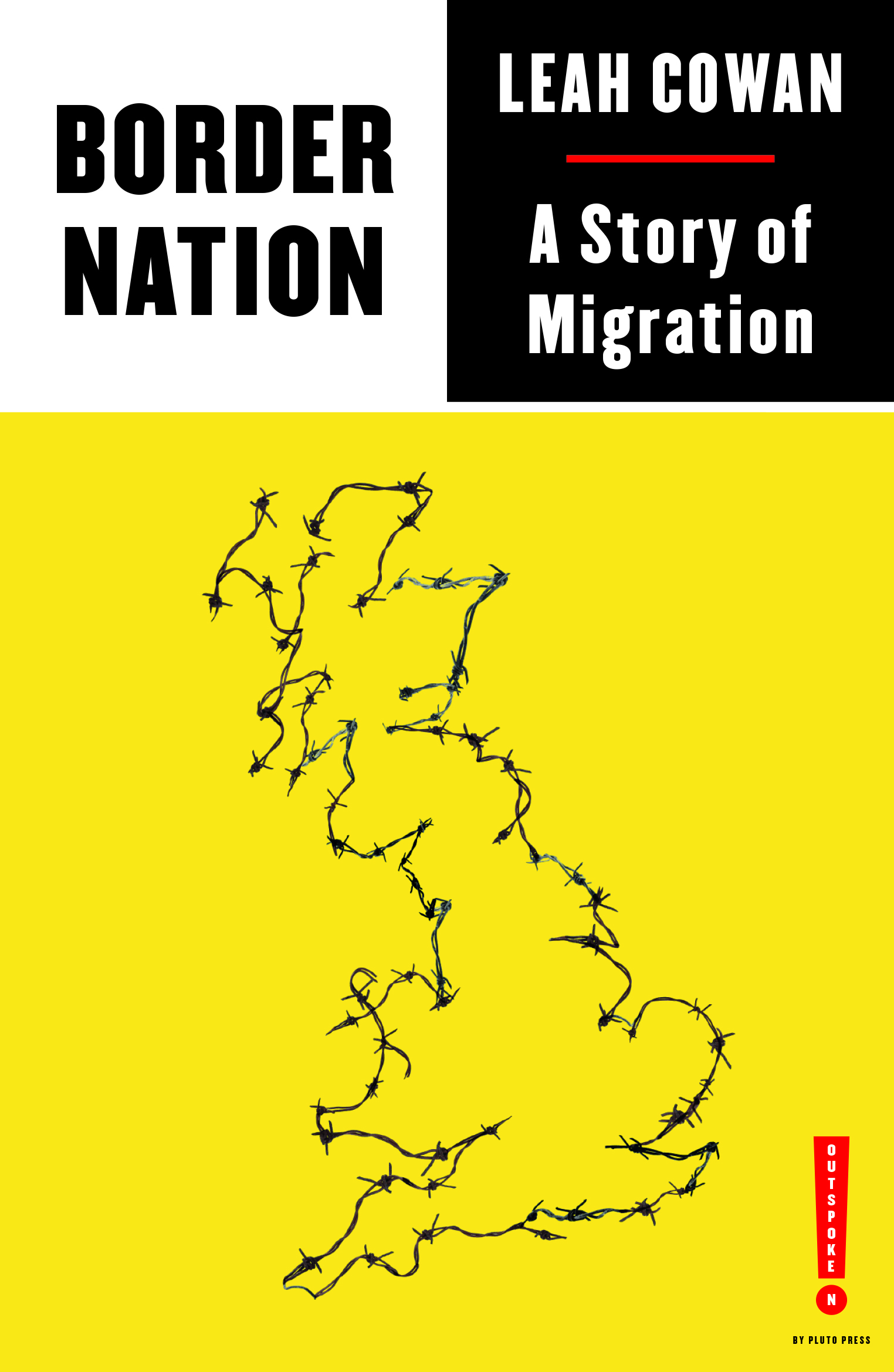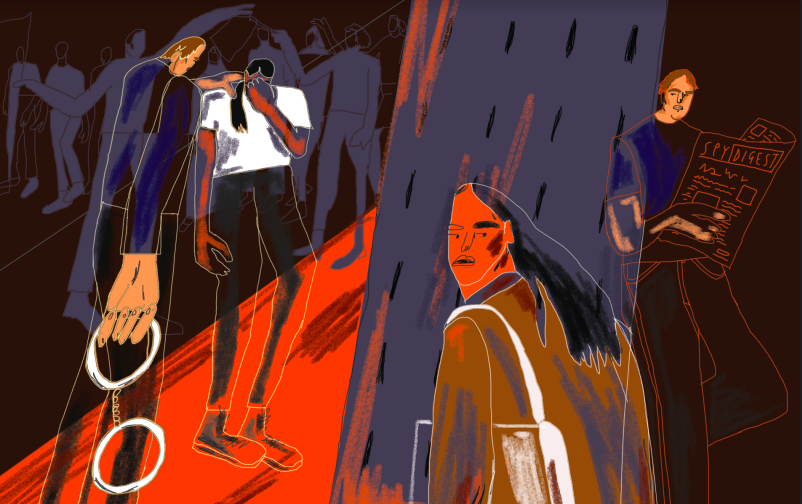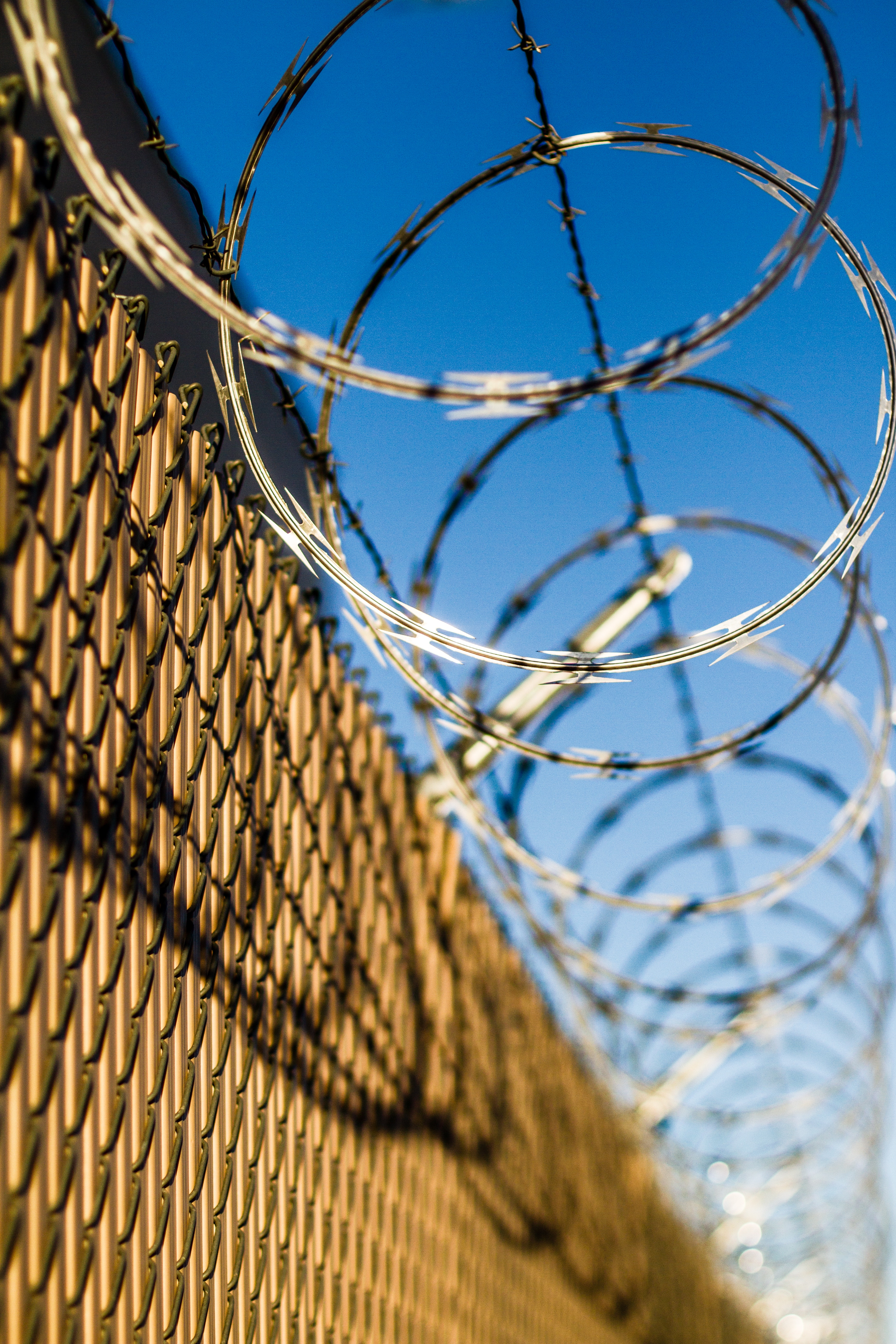
Leah Cowan’s Border Nation is a must-read manifesto for border abolition
“We have come to accept borders when, in fact, we can actually resist them at every turn”
Oyinkan Akande
23 Mar 2021
As my current visa nears expiry, reading Leah Cowan’s Border Nation is, in a word, triggering. It brought me face-to-face with the sort of structures that have been set up against people like me and people with fewer resources than I. In her authorial debut, Leah set out to write a “digestible piece of literature” on the topic of borders, hoping to bring together all the different aspects of Britain’s borders in one place. It’s a practical manual on how to interrogate the politics around the movement of people and the structures put in place to stunt it.
The scope of the book comprehensively spans Brexit, the political rhetoric and the media’s use of language around immigration, detention centres, deportations and the intersections of the border regime with gender and violence. She muses on the discriminatorily high burden for legal residence in the UK, damaging penalties and poorly implemented policies on trafficking, modern slavery, refugees and terrorism. It felt almost obvious – a real penny drop moment – to see how all of the different pieces fit together. Border Nation maps out how the now-topical hostile environment is simply a younger cousin of Europe’s colonial legacy. The main take-away? Borders are fiction, ostensibly created in the minds of white, powerful men to protect their own largely capitalist interests.
When we connect via Zoom, she speaks on the topic as passionately as you would expect of a border abolition evangelist. Often her sarcastic sense of humour offsets the heavy topics. Over the past decade, Leah, 31, has been introduced to the more violent aspects of the border regime in what she calls a “baptism of fire”. Through her work, she started to notice overlaps between these vulnerable communities. In her career, she’s ventured through the UK’s charity sector fighting for migrant rights and advocating against gender-based violence and other related issues for organisations like SOAS detainee support, Imkaan and Migrants’ Rights Network. And of course, worked for years as gal-dem’s Politics editor and was instrumental in setting the riotous tone of the publication.
“We have come to accept borders when, in fact, we can actually resist them at every turn,” Leah explains. Leah uses Border Nation as a call to arms, hoping to normalise this school of thought. There are already people resisting borders and living in defiance of immigration rules globally. Groups like the Stansted 15, who were facing terrorist charges for obstructing deportation flights, join the ranks with No One is Illegal, No Border Network, and Abolitionist Futures. Yet, because, for so many, the only experience of border control is at airports and seaports – purporting a sense that borders are about geography – one of the things that are so important that we address is how borders shift, operate beyond geography and cause harm. The policing of everyday borders enacts violence, threatening many with homelessness, exposing others to indefinite detention with little to safeguard their human rights and encouraging an environment ripe for trafficking, racial profiling and the exploitation of undocumented workers.
“If you are not white, borders are held over you as a potential vehicle for punishment, regardless of how far back your roots in the UK extend”
Leah, who has Jamaican heritage, explains how the elusive nature of borders has created what she calls a migrant community, which consists of more than the first generation. To belong to such a community means to have the ever-present knowledge of the liminality of your ability to belong. There is precedent in this country for even those born in the UK with full right of citizenship and abode to have this stripped from them – as evidenced by the story of Shamina Begum. “If you are not white, borders are held over you as a potential vehicle for punishment, regardless of how far back your roots in the UK extend,” she says. We need to consider borders through the lens of allyship. The reality is that everyone has a role to play in terms of interrogating the border regime but those less in danger of feeling the brunt of the UK’s immigration policies have the least to lose. It is important to discuss ways that we can all use our privileges.
Keen to see herself as a writer who sits in an ecosystem of border abolitionists she shouts out other projects. No Borders: The Politics of Immigration Control and Resistance by Natasha King, and Detained Voices, a blog featuring the verbatim testimonies of people in detention from over a period of some years, are her suggestions for further reading.
Meanwhile, Leah uses her book to instruct on ways that border resistance can be personally undertaken. This includes how to prevent your flight from being used for deportations or removals, leveraging the media and voting in officials more willing to consider the human lives impacted by callous immigration policies. The point is to show that border abolition is less abstract and impractical than most think. “When the popular discussions around prison abolition began, people were concerned that it meant throwing the doors of the prisons open and letting everyone out. But that’s not what abolition is,” Leah says. In each case, abolition simply means taking steps to reduce harm.
“The politics of no borders is fundamentally anti-state. I somehow don’t think that the Daily Mail is going to be part of that”
For every interrogation of borders that she undertakes, Leah backs it up with a slew of cases that evidence how they are fundamentally dehumanising. Looking at everything from the way the risk of death of the channel crossings has been exacerbated by restrictive border enforcement to how the performance of tackling modern slavery has pushed vulnerable communities into informal jobs where they are actually more easily exploited. On top of that, the language around immigration is such that she says you easily forget that “everyone deserves to be safe, everyone deserves a home”.
Education and exposure to these issues is key to gaining some much-needed perspective around the now contentious issue of borders. Those who came out as aggressively anti-immigration in the Brexit vote were also those who were least exposed to migrant communities. For example, the East Midlands market town, Boston, is the top leave area in the UK but out of a population of well over 41,000 only around 7,000 of its residents were born in the EU, and about 1,300 were from elsewhere. A tiny group when you think that 40% of London isn’t white. Similarly in South Holland, 73.6% of people voted to leave the EU in an area that is 97.8% white – far whiter than the national average of 87.2%. Only 9% of the town were from somewhere other than the UK and Ireland. So how did they come to fear something they barely saw?
Leah suggests that anti-migrant language is able to become vile because the people being referred to aren’t visible. The writer traces a history of this sort of dehumanising rhetoric to Nazism. Quoting Akala, she explains that once you start describing humans as non-humans, it is a mandate for murder. Border abolition is in essence a re-humanising mission.
Ultimately, we cannot trust mainstream media. We simply need to find new ways of engaging with and learning about immigration and borders, even for those not sold on border abolition. “The politics of no borders is fundamentally anti-state. It is calling for a holistic reconfiguration of how we relate to one another. I somehow don’t think that the Daily Mail is going to be part of that,” Leah jokes.
Rehumanising means shifting engagement with borders and immigration away from the privileged and nuance-free voice of the mainstream media and towards those who have a real lived experience of it. We need to stop talking about this idea of “the immigrant”. And, instead, learn to listen to migrant communities and investigate the lived consequences of borders themselves. We can’t interrogate borders without thorough, intentioned and extensive engagement with those who feel the brunt of them the most. “The foundations of any mission should always be based on the experiences of the people feeling the sharpest edge”, Leah explains. Her guiding philosophy is to prioritise humanity and wellbeing and if the government agreed we’d live in a very different world.

All the bad bills the Tories are pushing through this year

Shut down Manston camp, and take the rest of the UK’s violent immigration system with it

Revealed: ‘Shocking’ number of asylum seeker infant deaths in Home Office housing




